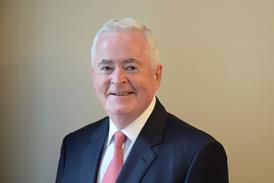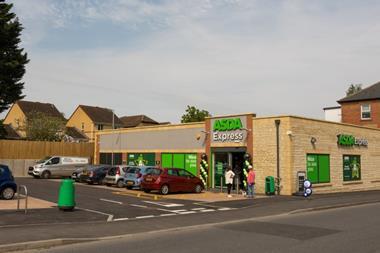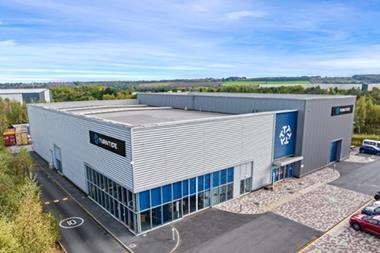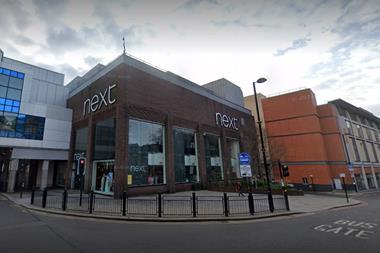The Covid-19 pandemic will inevitably have a lasting impact on the real estate sector. Property Week and Freeths brought together a panel of experts for a 2021 forecast to discuss how each sector will fare over the next year.

Panel of experts
- Keith Breslauer - Managing partner, Patron Capital
- Jonathan Goldstein - Chief executive, Cain International
- Emma Goodford - Partner, department head national offices, Knight Frank
- Gerald Kaye - Chief executive, Helical
- Melanie Leech - Chief executive, British Property Federation
- Steve Norris - Chairman, Soho Estates
- Richard Tice - Chief executive, Quidnet Capital Partners
- Darren Williamson - National head of real estate, Freeths
- Liz Hamson - Editor, Property Week (chair)
LH: What does Covid-19 mean for the property industry in the short and medium term?
SN: We all thought in November in the run-up to Christmas that we’d had a terrible year, and that it was probably as bad as it was going to get. But now we know that was wrong. We now believe, particularly in the retail, leisure and food & beverage industries, that you can write off the next two quarters at least. In our case, we have noticed that capital values have stood up remarkably well.
But in terms of the ability of some of these smaller occupiers to pay, we are not going to waste money chasing people who owe us a lot of money by now, because we are never going to get it. So for those industries, I am quite pessimistic.
JG: The statistics over the last two months have been horrifying. Having said that, in some senses, the hospitality trade being closed is better than it being subject to all these tiers and restrictions because at least they have clarity.
The big issue, of course, is between landlord and tenant. You cannot have a one-size-fits-all policy, but I think someone is going to have to make a judgement call on the moratorium and whether it should be extended. Someone needs to come up with a policy to fix this bad balance between landlord and tenant.
Some very big decisions need to be taken, but ultimately clarity is better than a fudge position
Jonathan Goldstein
There are some strong retailers that can afford to pay their rent and do not, and some smaller retailers that cannot afford to. There are going to be some landlords that cannot afford to take the burden of having written off a year’s rent, and there will be some that can.
But I think to leave the marketplace in its entirety to sort out that question is going to be a bloodbath. Some very big decisions need to be taken and they are going to have to be brave and controversial, but ultimately clarity is better than a fudge position.
ML: The big challenge is that there is a part of the market that thrives on uncertainty and sees opportunity. But a lot of the real estate market wants clarity and certainty, and no one can give us that. No one can tell us that this is a trajectory, leading to a certain point. And that is one of the huge challenges all of us face. Even if landlords and tenants want to come to the table and negotiate in good faith, they are doing it against a moving picture of what they can both bring to the party.
LH: What is the BPF lobbying for now?
ML: We think there does need to be a way of bridging that gap. There is a whole group of people who speak to us where neither the landlord nor the tenant are working together to provide a total solution because the landlord cannot bear the pain that the tenant needs it to take. The government needs to unlock this somehow. We are arguing for it to put something in the pot to make that work. No one should think about coming out of Covid-19 without sharing some of this pain.
LH: What does the impact of Covid-19 mean for the office market?
GK: We are helping the office tenants that cannot afford to pay as much as we can and we are open to sensible discussions. I think it is going to get worse before it gets better. But I think lots of people who have not been commuting will have saved resources and that will hopefully help the recovery when people can go out and spend again.
Covid-19 has accelerated trends including flexibility, dynamic working and driving for better-quality offices
Emma Goodford
LH: What impact will Covid-19 and Brexit have on the property industry in the short and medium term?
RT: The last couple of months have shocked us all and I think that will make the government more cautious in its decision-making than it might have been previously in terms of easing restrictions. For most of our industry, it is going to be challenging – apart from the industrial sector where I have been pleasantly surprised by the ability of tenants to pay rent and to stay open. I think it is going to be a very difficult time for most, and I very much doubt that some parts of the government picking up some of the rent will get any traction. The market will just have to somehow absorb that.

EG: From an office point of view, I think Covid-19 has taken us almost full circle. We started with everyone at the start of the year loving being at home and presuming productivity could be maintained. Covid-19 has very quickly accelerated trends in the office world including flexibility, dynamic working and driving for better-quality offices. There is now more focus on wellbeing and a maintained focus on sustainability, which was possibly at risk of being forgotten. I think there are signs of certainty that if the vaccine is successful the office occupier may begin to emerge.
KB: I think we are going to be very surprised by what is going to happen with consumers and what they are going to do when places open. When places opened in September and October last year, it was incredible. Do you think everyone is going to stay at home when we open? They have already booked their summer holidays. There is hope for a significant shift and as long as the global economy continues like China and the US there will be a benefit; combined with cheap interest rates and high consumer savings, it will create a positive shock and stabilise.
LH: What will happen in the medium to long term on the offices front? Will we see a rise of the hub-and-spoke model and what role will flexible workspace play?
GK: I have been a strong proponent of the office and I think the view of the benefits of working from home is changing now. I am not convinced by the hub-and-spoke model because the whole point of going to the office is to see everyone else and to collaborate and share ideas. If you are just going to your local office in your local town, you may as well stay at home. I think central London will remain strong and I think there will be a demand for the newest and best offices, because employers are going to be incredibly concerned about providing the best space they can for their employees.
Do you think everyone is going to stay at home when we open? They have already booked their summer holidays
Keith Breslauer
LH: How are people going to return to work?
EG: Even before Covid-19, I think we were moving very quickly towards new ways of working and that was to give everybody more choice. It is too early to say what sort of percentage of space might or might not be taken because businesses are now trying to understand first how to get back into the workplace and second how to use it. Everyone is watching and waiting at the moment, but everyone knows the office will be used differently.
LH: For retail and hospitality, what needs to be done to level the playing field?
JG: Clearly, over the last year there have been huge winners – mainly the online world, which has done extraordinarily well and that has fed into peak demand for industrial and logistics. I did find it interesting that Boohoo did not take any of Debenhams’ physical stores, which will be a big blow to the high street. What the pandemic has done in a physical sense is to attack those with underlying vulnerabilities. It has attacked those that had weaknesses in there already. It needs to be fixed, but there is not a one-size-fits-all solution.

DW: Online retailers are the obvious winners in all this, but the food sector has also been incredibly resilient. What irks me is that while a lot of the big supermarkets have handed back business rates relief, others have not. That, for me, is something that needs to be addressed.
What irks me is that while some big supermarkets have handed back business rates relief, others have not
Darren Williamson
But as well as the impacts of Covid-19 and Brexit, an issue that no one is talking about is flooding. For the poor retailers already affected by opening and closing all the time as a result of Covid-19 to have been all of a sudden over the last three or four weeks drowned out, we know that insurance payouts just do not meet the anguish and pain this brings people.
LH: Will 2021 be the year that climate really does come into play, and is this possible as the pandemic continues?
DW: I think there is weight of expectation around the world at a political level and COP26 in Glasgow is going to be the best last chance of addressing climate issues. We have just redone our five-year strategy as a business and at the heart of that strategy are sustainability and environmental impact, and it is the first time we have really centred on that. I think a lot of businesses are going down that path for the first time, so I cannot see it coming off the agenda.
LH: Will the industrial sector be able to sustain the momentum it has built up over the past year?
RT: There is just no supply of small industrial because no one has built any schemes below 20,000 sq ft and 30,000 sq ft for a long time. All over the country, I think we will see relative growth, yields sharpen and occupancy levels very high. It is remarkable how those occupiers are merrily paying rent – there is clearly a divide across these sectors. Melanie, are there any discussions about an internet delivery tax to try and offset business rates for the high street and hospitality?
ML: The government announced a fundamental review of business rates last year, and it is due to report back in the spring, so I think we will have to wait and see if it is brave enough find a solution. As well as that, other things need changing. For example, we have the landlord and tenant act review as well. I think the challenge in all this is whether the government can legislate or make a policy that is future-proof and flexible enough.
LH: Will industrial tail off?
DW: The deal flow for the industrial sector has remained largely unchanged and unaffected. I can only see the sector getting stronger. The biggest change we will see is where we put industrial: will it go underground, which is what SEGRO is looking to do nowadays? I just cannot see the freight train slowing down in the sector. The structural change has always been coming; it has just been accelerated.
LH: What does Covid-19 mean for inward investment?
KB: If you have a yielding building in this market today, there is billions of pounds or euros interested in buying it. I think we are far too pessimistic on what is going to happen in the future. Essentially, what we have lost is one year of value – potentially up to three years of value – in the economy, so we look at it like a reset but we will see how it plays out. I think we are going to go through natural cycles. The fundamental thing is that this vaccine works, and the fact there have been millions of doses given already is fantastic.
All over the country, we will see relative growth, yields sharpen and occupancy levels very high
Richard Tice
LH: Where will the climate crisis agenda go this year? What are your fears and expectations for 2021?
EG: I am optimistic as to how the market is going to behave in terms of the climate crisis. On the advisory side, we have a responsibility to absolutely drive it. Obviously, we cannot force it but I think there is a perfect storm of the occupier really demanding it as well. If we are going to future-proof assets in terms of their value and future-proof occupation because of the demands occupiers make, we will have no choice but to do it.

It has been really hard to judge productivity against the backdrop we have had. Some occupiers are judging whether their people are more productive at home or in the workplace and that is really hard to do. But certainly, I think we have turned a corner and come back towards a workplace based on a place of work.
GK: Climate is hugely important and it is centre stage. We must all work hard at that. My biggest hope is that the vaccine works because we have got to get everything moving again.
RT: The climate debate is going to take centre stage as we move closer to COP26. There clearly needs to be an understanding of it, not only in property but also in terms of the cost it means for everyone. I think the overwhelming health crisis will consume most of us for the rest of the year and that will have an impact on everything. The impact on travel and tourism could be even more seismic than it has been. I think it will be a year of incredible change and evolution.
DW: I think COP26 is an inspiration for everybody. It will hopefully be a flagship year for climate. My fear this year is taxation and where we go on that come March. I hope the chancellor kicks it down the road to August and we have a second budget to give people time to repair. I think after March and April when all the relief schemes unwind, we will see a lot of CVAs and problems.
What goes around comes around and how people have behaved during this period will be remembered
Melanie Leech
My other fear is that all the legislation under way including white papers, the landlord and tenant act and planning reform could be too much for the government to handle and get kicked further down the road and delayed.
ML: It is going to be an incredible year of change and it is going to be very challenging. We need to hunker back down on the fundamentals and values of real estate. Our values need to be in the core of everything we do to navigate through this period of change, because you know what goes around comes around and how people have behaved during this period will be remembered.
SN: COP26 will be a more harmonious event with Joe Biden there rather than his predecessor. As usual, a lot of actions will be agreed but not many will get carried out. My concern for the future is that, because we now know the pandemic is by no means over, there is still so much uncertainty around whether the vaccine does work.































1 Readers' comment